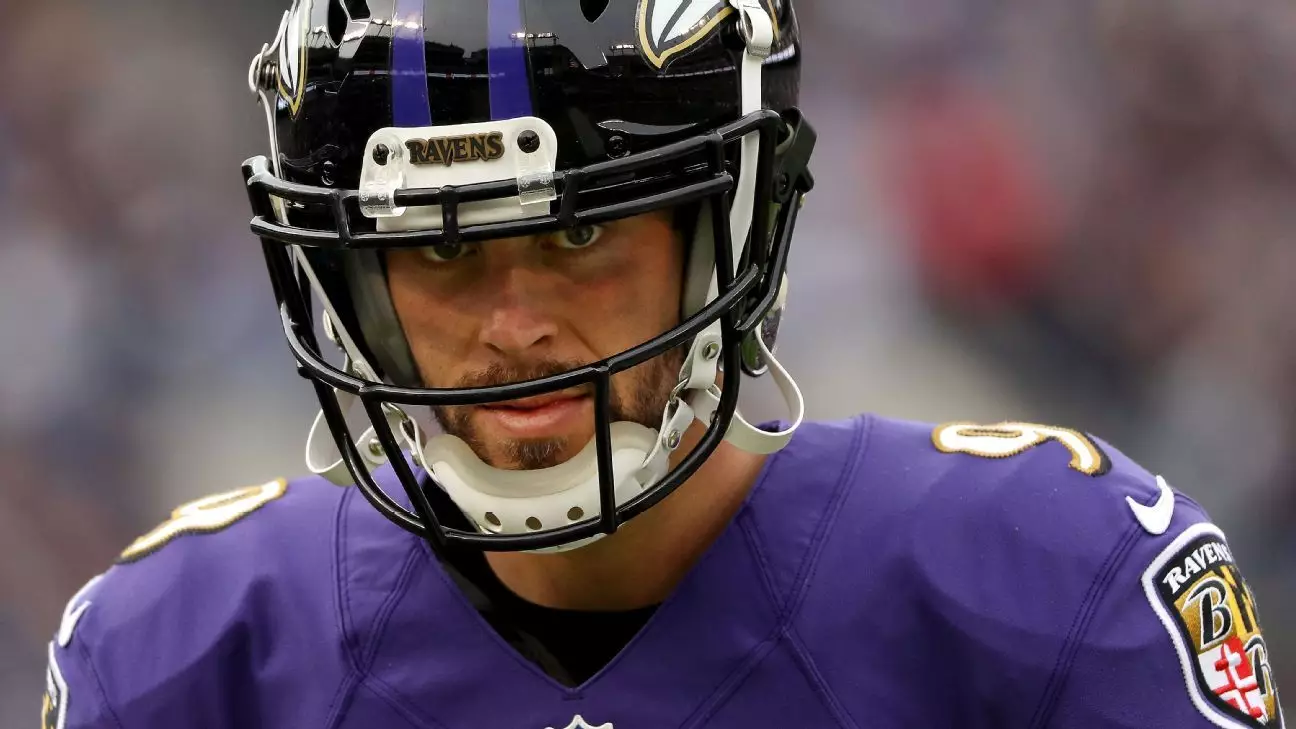The recent wave of accusations against Baltimore Ravens kicker Justin Tucker has unleashed a torrent of scrutiny, raising severe questions about trust, professionalism, and accountability in the sporting world. The initial reports revealed a staggering sixteen women from eight different high-end spas alleging sexually inappropriate conduct by Tucker between 2012 and 2016. Such allegations, if true, paint a troubling picture, underscoring a need for a deeper examination of behaviors often dismissed in professional sports.
The accusations against Tucker signal a disturbing trend where high-profile athletes may exploit their status. Reports suggest that his inappropriate behavior spans several years, specifically during a period when he was solidifying his role in the NFL. The specifics of the allegations are shocking; some women claim that Tucker left what they perceived as ejaculate on massage tables, while others have indicated that he engaged in intense eye contact during sessions. Such claims are not only damaging to Tucker’s personal and professional reputation, but they also shine a light on a mechanism of power dynamics at play within the industry.
Assistant coaches, team owners, and fans alike often idealize athletes, creating an environment where misconduct can thrive without adequate checks or balances. The growing number of women coming forward with allegations indicates a troubling pattern that, if left unchecked, could further compromise the physical and emotional safety of therapists who are merely there to perform their professional duties.
As the controversy deepens, NFL Commissioner Roger Goodell’s formal acknowledgment of the allegations during a press conference signifies the gravity with which the league is approaching this issue. Goodell referred to the allegations as “serious issues,” emphasizing that they are taken seriously by both the NFL and Tucker himself. However, the league’s history with addressing matters of personal conduct has been inconsistent, often criticized for failing to enact stringent responses to wrongdoing among its players.
For their part, the Baltimore Ravens released a statement indicating that they too take such allegations seriously. Statements like these, however, can often feel hollow when they follow a predictable pattern of inaction. The Ravens’ earlier comments regarding a zero-tolerance policy in similar misconduct cases further complicate their stance. In light of these new allegations, fans are left wondering whether accountability will be prioritized or if the organization will choose to protect its legacy and superstars over ethical responsibility.
In the wake of these gravely serious accusations, Justin Tucker’s legal team has categorically denied the claims, labeling them as “unequivocally false.” His lawyers have urged media outlets to refer to a previous social media statement where he asserted that the allegations distorted innocuous interactions. The language of “tabloid fodder” employed by Tucker’s team attempts to shift the narrative away from accusations and onto the credibility of the sources. However, the response falls short of addressing the core issues the allegations raise about the treatment of women in the workplace.
An owner of one of the spas defended Tucker, claiming she had never received complaints regarding his behavior. Still, the insights shared by therapists about their hesitance to report misconduct due to fears of job loss illustrate an endemic issue within service industries. This lack of protection for individuals speaking out about improper behavior further complicates the dialogue, serving as a deterrent for victims of abuse or misconduct across various sectors.
The allegations against Tucker, whether fully substantiated or not, provoke a necessary examination of gender dynamics, accountability, and the treatment of individuals in vulnerable positions. As the story unfolds, it will be imperative for not only the NFL but also society as a whole to scrutinize how accusations of misconduct are addressed and to ensure that victims feel safe and supported in speaking out. The reactions of both Tucker and the Ravens’ organization in the coming weeks will be pivotal in shaping a larger conversation about athletes’ conduct and the responsibilities of both clubs and leagues to their players and the community at large. Whether this incident catalyzes lasting change or is quickly swept under the rug remains to be seen, but the stakes are undeniably high.

